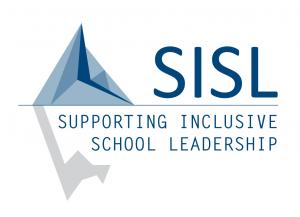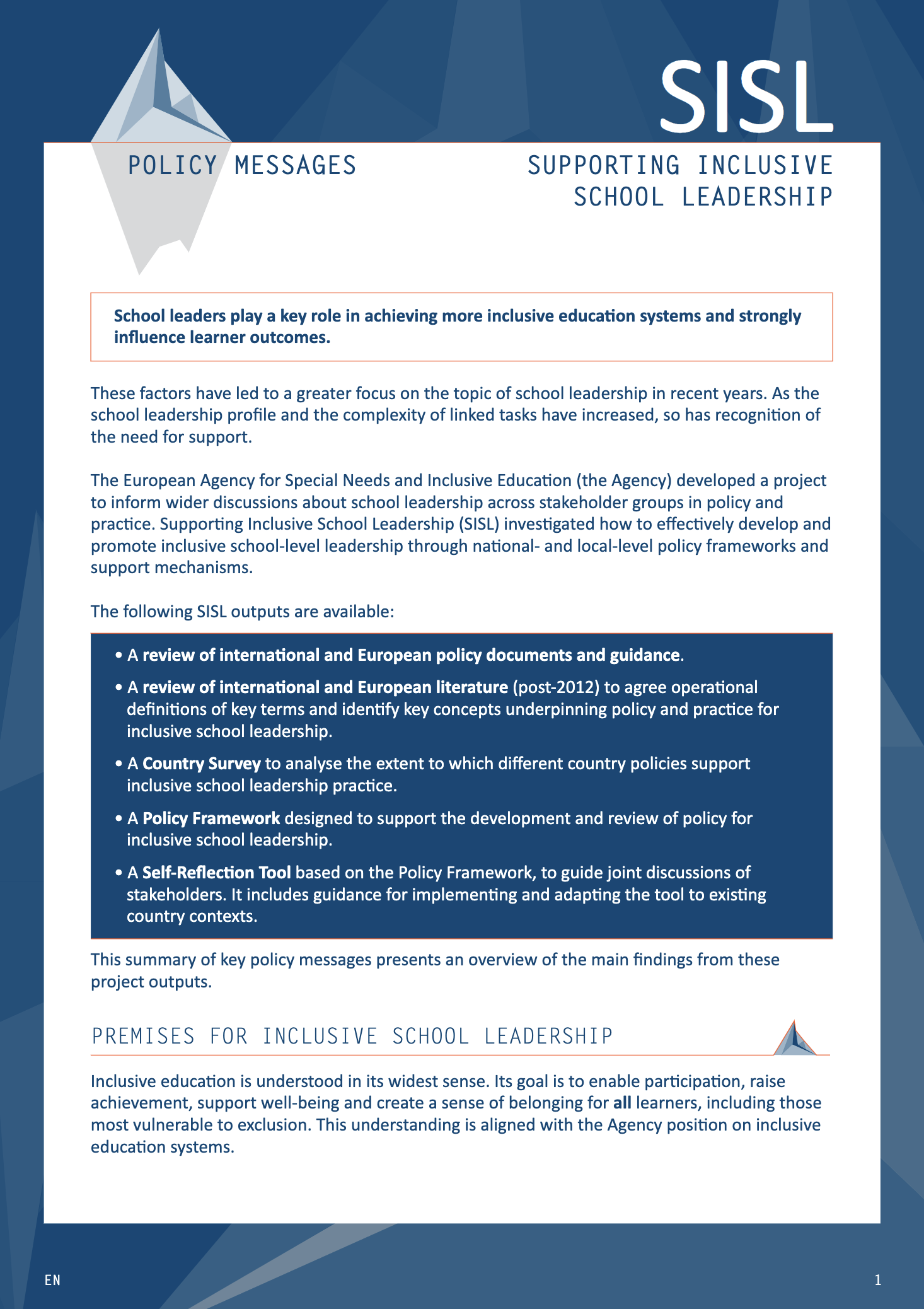Welcome to the Supporting Inclusive School Leadership web area!
Agency work, particularly the Organisation of Provision to Support Inclusive Education and Raising the Achievement of All Learners in Inclusive Education projects, has highlighted school leadership as a crucial factor in developing a more inclusive education system.
The Supporting Inclusive School Leadership (SISL) project aimed to investigate how to develop and promote inclusive school-level leadership through national and local-level policy frameworks and support mechanisms. To do this, three key questions guided the project activities:
- What policy frameworks are required to develop and support inclusive leadership across the whole education system?
- What are the essential competences needed for effective inclusive leadership practice at school level?
- What support and professional development opportunities are required to develop and sustain effective inclusive school leaders?
Project framework
The project considered leadership for inclusion aimed at addressing inequality and building community and full participation. It focused on valued outcomes for all learners, including those most vulnerable to exclusion.
Phase 1 of SISL began in 2017 and ended in 2019. Phase 2 began in late 2019 and continued until 2021.
Project methodology and aims
Phase 1 analysed available policy and research literature to identify aspects that affect school leadership. This analysis highlighted a specific focus on inclusion and equity, as added value to existing work. The research for the literature review and policy review provided a working definition of inclusive school leadership. It also created a framework for collecting and analysing country information to answer the key project questions.
A survey was sent to all Agency member countries. It asked for specific inputs, with excerpts from policy documents, on different aspects of school leadership and inclusive school leadership. The synthesis report presents the survey analysis and findings.
Building on the phase 1 outcomes, phase 2 focused on designing a policy framework and developing and piloting a self-review tool for mapping country policies for inclusive school leadership. Both the policy framework and the self-review tool are available to all countries as open-source materials. The main target group for the SISL project outcomes is national- and regional-level policy-makers responsible for implementing inclusive education in schools. This includes school leaders and leaders at municipality level, regional level and national level.
Phase 2 was conducted with a Project Advisory Group (PAG), with four country partners – from Hungary, Ireland, Malta and Sweden. Each country partner nominated an expert from their country to work on the project.
Project activities and outputs
The phase 1 outputs were based on desk research. They were:
- A Policy Review that builds upon an extensive review of European and international policies.
- A Literature Review based on issues identified in past Agency projects and European and international research literature on inclusive school leadership.
- A Country Survey that builds on those two reviews and was sent to all Agency member countries in September 2018.
- A Synthesis Report providing an overview of the phase 1 activities and the outlook for phase 2 of the project.
The phase 2 outputs were produced with the involvement of the PAG and the expert group. They include:
- A Policy Framework specifically designed to support inclusive school leadership.
- A Self-Reflection Tool based on the Policy Framework.
- A summary of key Policy Messages.


